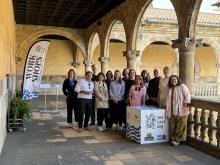Coordinators: Marika Sosnowski (Melbourne Law School)
Description of the meeting
Bringing together diverse scholars at different career levels, as well as scholars with lived experience and those originally from the Global South this project on the legal afterlife of war and revolution seeks to explore the following questions:
- How do personal experiences of the law after mass violence or revolutionary events affect the legal consciousness of subsequent generations?
- If legal consciousness is all-encompassing, what avenues are there for resistance and/or subversion of state violence and the law?
- How does an individual’s understanding of the law after violence or revolution in their country of origin affect their understanding of law in the state they have been displaced to?
- Are there particular physical manifestations of the law (e.g. the necessity to acquire legal identity documents) that provide a unique window into how legal consciousness functions? And if so, how?
- What functional role do legal concepts such as treason and political loyalty play in post-war or post-revolutionary states?
- How do specific, seemingly benign, laws change or morph over time as a result of war or revolutionary events? And, how are these used and/or perceived by citizens or certain segments of the population?
The proposed workshop at Oñati will mark the end of an 18-month “slow scholarship” project on this theme. The project subscribes to a slow scholarship manifesto where academia is not only about production but the means and ways in which scholarship comes about. To this end, the project has convened an agenda that involved monthly online meetings to share, discuss and collaborate on each others work and suggested readings; shared notes via series’ of WhatsApp voice messages; is working on a podcast and a thread for AllegraLab and gathered for a workshop at Melbourne Law School in Australia in November 2024 which included a 3-night residential retreat at a national park as a community building exercise.
The project is interested in establishing mentoring relationships where possible. The Oñati workshop will be used as a way for early career scholars to network with more experienced and senior academics, as well as for all participants to learn from and input on each other’s work. Around 6-8 articles will be finalised for publication in a special issue of the Journal of Legal Anthropology or the Political and Legal Anthropology Review (PoLAR). The aim of the workshop is to foster relationships that will outlast this project and the Oñati workshop, helping scholars navigate the complex landscape of academia as well as assist early career scholars to produce more thoughtful and careful socio-legal scholarship.
Our experience in Oñati
Marika Sosnowski
The legal afterlife of war and revolution
After arriving in Oñati on a glorious Spring evening in mid-April I sent the following photo of the view from the Antia residence to family and friends back home with the note:
“Perhaps finally found the Shangri La of academia?”.
Indeed, over the next few days, the International Institute for the Sociology of Law and the workshop I was lucky enough to host here on the theme of The legal afterlife of war and revolution did become our very own Shangri La – a mystical, idyllic and isolated utopia. In an academic industry often known for its cut-throat, individualistic and competitive nature, Oñati provides an opportunity for much needed respite.
Our workshop was in equal parts inspiring, generative and fun. It offered the opportunity to gather together in-person to mark the one year anniversary of our slow scholarship project. We made use of this time not just in academic discussions and engagement but eating, drinking, laughing, walking and learning together. The workshop, the town of Oñati and its surrounds, the building in which the Institute is housed and the Antia residence all work together to provide an optimal setting for sharing knowledge in different forms, for strengthening existing bonds and nurturing others.
The Institute staff that I had the pleasure of meeting and working with – Malen, Maite and Leire – supported me and all the workshop participants in every conceivable way from transport, accommodation and dining options through to hiking routes and tourist information (did someone say maps, umbrellas or restaurant reservations?).
I would encourage every colleague I know to visit this little slice of academic paradise.

